
Here's my Top 10 links from around the Internet at 10:00 am today in association with NZ Mint.
Bernard will be back with his version tomorrow.
As always, we welcome your additions in the comments below or via email to bernard.hickey@interest.co.nz.
See all previous Top 10s here.

1. Baggage concerns? Apparently not
Anyone who has seen the movie Inside Job will probably remember the cameo by economist Glenn Hubbard. He was suckered into appearing, then skewered over how his research into public policy issues was funded by the financial industry. These scenes have resulted in some change in the relationships between academic economists and the finance industry.
However, Hubbard has re-emerged as Mitt Romney's 'go to economist' and the NY Times has done an updated review of his place in developing Republican economic policy. In fact, he may well end up either as the US Treasury Secretary, or even replacing Ben Bernanke.
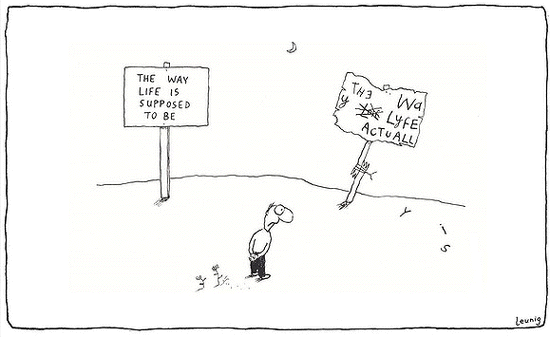
2. What's the average adult worth?
(That's, the average adult in the world ...) The answer is NZ$60,000 (US$49,000), according to the Credit Suisse global wealth report, based on their estimate that global household wealth in mid-2012 totaled NZ$275 trillion at current exchange rates. (We had trouble downloading this report in some browsers, so I have attached it below as well.) It's a comprehensive Report and if you are into wealth inequality, take a look. New Zealand only gets one mention though, in a table on page 27 - we are grouped in a set of countries with a high debt-wealth ratio, and moderate debt growth.
Between mid-2011 and mid-2012, only China and North America increased their net worth, and India and Europe saw the sharpest falls, according to the report. The world as a whole had a 5.2% fall in household wealth.
Looking ahead, and assuming moderate and stable economic growth, we expect total household wealth to rise by almost 50% in the next five years from USD 223 trillion in 2012 to USD 330 trillion in 2017. The number of millionaires worldwide is expected to increase by about 18 million, reaching 46 million in 2017. We expect China to surpass Japan as the second wealthiest country in the world. However, the USA should remain on top of the wealth league, with USD 89 trillion by 2017.
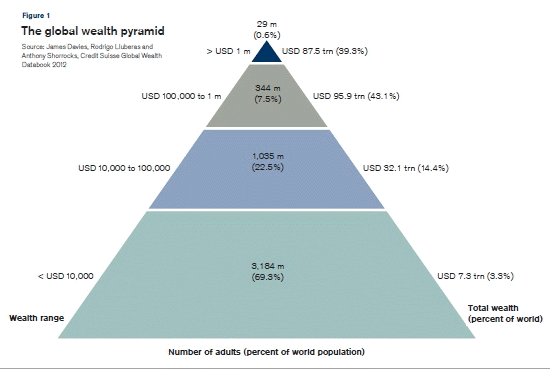
3. What do you think now?
People point to the Baltic Dry index when it is sinking as proof the world is going to hell-in-a-handbasket. So what are you to think when it goes up? It has risen by +40% in the past month. (Not news you are likely to see elsewhere.) It's gone from 662 to 926, and that is a good recovery in anyone's book.
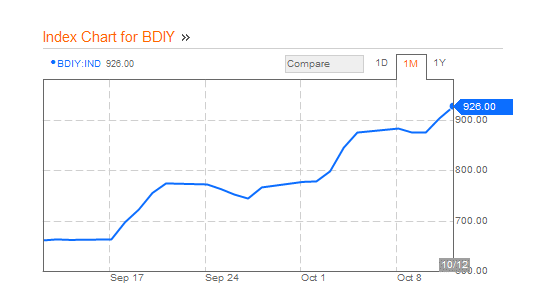
4. Playing fair with fear
Want to be scared? Read this » (warning: ugly rat pictures) or this » but are we getting immune to 'politics-as-science'. Science has always been about debate, and that debate has revealed important directions.
But something is going awry when these debates spill out into the general public. Maybe it's something to do with attention span, something to do with tolerance for detail, or something to do with complexity. Whatever it is, it is undermining healthy scienticic debate. I suspect scientists confuse everyone when they team up with activists and everything goes political. Consensus and education become impossible.
Campaigners on important but complex issues, annoyed by the length of time required for public deliberations, often react by exaggerating their claims, hoping to force a single solution to the forefront of public debate. But, however well intentioned, scaring the public into a predetermined solution often backfires: when people eventually realize that they have been misled, they lose confidence and interest.

5. The other (much bigger) Japanese danger
Scientists say last year's earthquake in Japan has greatly increased the pressure of the magma chamber underneath Mount Fuji. ABC News is reporting on the danger:
The volcano last erupted in 1707, less than two months after a large earthquake. That blast scattered ash and cinders as far away as Tokyo, 100 kilometres from the volcano.
Experts at Japan's National Research Institute for Earth Science and Disaster Prevention say there is heightened pressure under Mount Fuji due to last year's devastating earthquake and aftershocks. The magma chamber is about 15 kilometres underground and it is feared the increase in pressure could trigger an eruption.
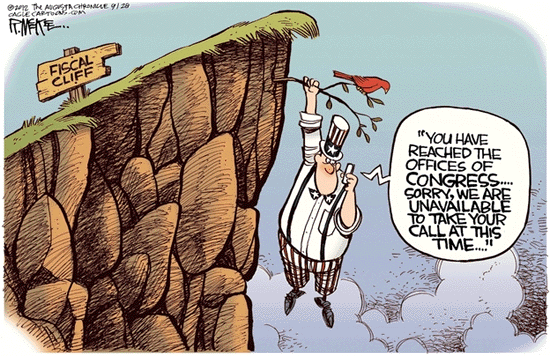
6. What do investment bankers actually do?
Now that's a good question. Its one asked by NPR, and they got one to answer it.
I can't put it better than the senior banker who once asked me why I had chosen to "become a traveling money salesman." I've dined out on that phrase ever since, and probably owe him royalties, though I'm not going to sweat it since he's quite rich.
Investment bankers are traveling salesmen (and women), which explains why many of them are so ornery so much of the time. It also explains why, while in popular perception investment bankers are arrogant jerks wearing Hermès ties, actual individual bankers tend to be perceived by their clients as obsequious and needy. Because they're selling something. Specifically, they're selling money to companies.
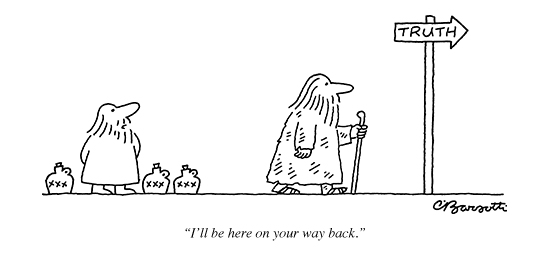
7. But is it legal?
The markets have celebrated Mario Draghi's announcement that the ECB will embark on unlimited purchases of sovereign bonds from crisis stricken countries. But are such purchases really legal? Draghi's own justification for the program leaves plenty of room for doubt. Spiegel Online explains:
Does the ECB's bond-buying program fall into the category of monetary policy consistent with the bank's mandate of maintaining price stability? Or does it step over the line into fiscal policy by intervening in countries' efforts to obtain capital, which it is expressly forbidden from doing?
It's a difficult question to answer. There is, after all, no clearly defined boundary where monetary policy ends and fiscal policy begins.
The ECB is prohibited from directly purchasing bonds from governments, and yet purchases on the bond markets are among the instruments at its disposal. It is permitted to make such purchases, but only for reasons of monetary policy, such preventing deflation, for example.
8. But which half?
We argue over the facts here at interest.co.nz all the time and mainly over their relevance to an issue (and almost always an economics issue). But these 'facts' are way more fluid than I realised. Most people seem 'fixed' in their view of key facts - but see themselves as flexible and others as 'stuck'. We've perhaps been blinded by viewing this trend as 'interpretation'. But what if it is the core 'facts' that have been wrong in the first place? 'Facts' in the physical world seem to change as much as those in the world of ideas. It's been an issue noted since 1947. Ronald Bailey reports:
Dinosaurs were cold-blooded. Vast increases in the money supply produce inflation. Increased K-12 spending and lower pupil/teacher ratios boosts public school student outcomes. Most of the DNA in the human genome is junk. Saccharin causes cancer and a high fiber diet prevents it. Stars cannot be bigger than 150 solar masses. And by the way, what are the ten most populous cities in the United States?
In the past half century, all of the foregoing facts have turned out to be wrong (except perhaps the one about inflation rates). In the modern world facts change all of the time, according to Samuel Arbesman, author of The Half-Life of Facts: Why Everything We Know Has an Expiration Date
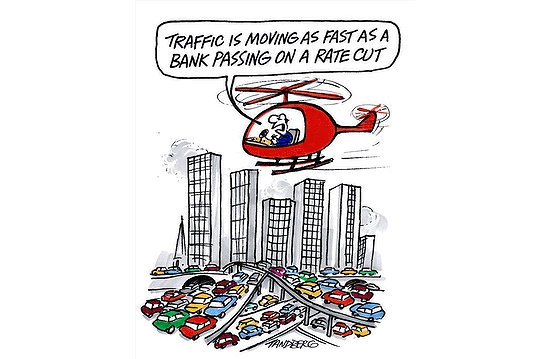
9. Euro own-goal?
The idea of a financial transaction tax in the European Union has been slowly gaining support over the last two years, with Germany and France advocating most vehemently in favour. Now they have convinced nine other EU states to join them - though details remain scarce. More from Spiegel Online:
Finance ministers from 11 European Union countries agreed at a meeting in Luxembourg on Tuesday to support a tax on financial transactions, hoping to discourage risky trading while simultaneously raising revenue.
Germany and France, the EU's two largest economies, have long supported the idea of the tax, while countries like the Netherlands, Sweden and the United Kingdom remained staunchly opposed out of fears the tax could harm the competitiveness of their financial markets.
Sweden imposed a similar tax in the 1980s, only to lose much of its trading activity to London. Stockholm later repealed the law.
"We still think that the financial transaction tax is a very dangerous tax," Swedish Finance Minister Anders Borg said ahead of the meeting. "It will have a negative impact on growth."
There are still few details on how the tax - referred to as the "Tobin tax" after the Nobel laureate American economist James Tobin who first proposed it in 1972 - would work and how its revenue would be used. The European Comission, the EU's executive branch, has proposed taxing trades in bonds and shares at a rate of 0.1 percent per transaction and taxing trades in derivatives at 0.01 percent.

10. Data watch
There is a lot of talk about the 'high NZD' hurting our exports - I am sure it is not helping some (we've long been uncompetitive making shoes or clothing for example), but it is not showing up in the NZD price of some key exports, like dairy. And I was surprised to see data recently showing that China's imports of iron ore has grown to a 20 month high. Chinese exports are up too. International trade seems to be expanding ...
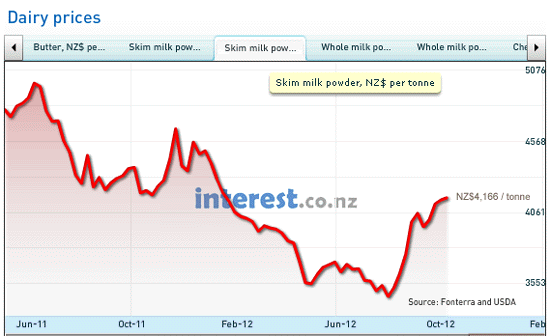
20 Comments
"We still think that the financial transaction tax is a very dangerous tax," Swedish Finance Minister Anders Borg said ahead of the meeting. "It will have a negative impact on growth."
Said like a true spot trader Mr Borg..... ..growth...? Or dodgey Swiss Banking deposits.....?....growth ..? ha ha you a funny boy Mr Borg.
Although getting it through in the States might be a lot more difficult with the ISDA becoming defensively litigious at the mere mention of limiting volumes by regulation let alone FTT's......
No Mr Borg, the productive markets need some of that speculative lolly to put some reality back on the table.
http://www.businessweek.com/ap/2012-09-28/judge-strikes-down-rule-capping-speculative-trades
Gummy Bears & Bourbon , thanks for that ..... Cheers !
Hmm, think your comment on the Baltic Dry might be misleading:
http://investmenttools.com/futures/bdi_baltic_dry_index.htm
Hmmmm.Roger W...I dunno but I did find the quote of the week,and someone I can finally relate to
"I tell you, we are here on earth to fart around, and don't let anybody tell you different" - Kurt Vonnegut This little page may also interest many here http://www.treasury.gov/resource-center/data-chart-center/tic/Documents/mfh.txt Caribbean Banking Cartels....ha ha...Mitt's stash...
#3 except when you look at the trend for a year its flat or down a bit well from 2100 to 926 is quite a lot........classic cherry picking....why not take 2 days then its 875 to 926, a world recored recovery is under way....!!!
When it breaks out of that band its been in all year then I'll take heed..
;]
Of course there is always this, BRICS expected to be slower growing for a while,
http://www.bloomberg.com/news/2012-10-14/global-economic-distress-3-0-l…
regards
Re #6 Investment bankers:
... individual bankers tend to be perceived by their clients as obsequious and needy. Because they're selling something. Specifically, they're selling money to companies.
Be they slick, slimy of suave: salesmen indeed but aren't they selling debt rather than money?
Ok purists, money is probably very much the same thing as debt but that is not what they are selling.
@Baltic Dry Index story , we need more details , but I am left wondering whether China has already gone about a quiet stimulus and iron ore and coal is being purchased ?
Another possiblility is grain ( Wheat and corn) movements globally , with tradtitonal surplus countries in drought , it means shipping is on the up ?
Lets see how this story unfolds , here's to hoping its sustainable good news
That oil demand growth chart, URL please?
regards
Click on it, or
http://www.theglobeandmail.com/report-on-business/mapping-oils-future/article4610414/
Cheers,
I love David's top 10's! They're more balanced than Bernard's gloomfests.
David Chaston does balance it with good news (Thankfully someone does ) , although Bernard acts as an early warning system for me about possible negative outcomes, and his ability to suss out the negative consequences of overseas events on us here, is quite useful and insightful .
I enjoy both approaches to the Top 10
The Baltic Dry is highly leveraged (and looks ahead) index. To say "+40%" off such a low does NOT represent a recovery.
Much of 8) were never facts, but a hypothesis.
Is that a fact?
"ending about 90 years of socialist rule"...now they have to repair the damage!!!!
You really are a twit.
"It supports public transport, open source software, renewable energy and taxing cars by the actual number of kilometers driven. It wants more aid for developing countries"
Looks more like the NZ Green party........
So far I'd vote for them!!!!
LOL
More Mish b*llocks....
regards
#8 printing causes inflation was never a fact....
#8 Stars can be bigger than 150 solar masses, this is true, but its nothing to do with a dis-proved scientific theory. I heard this from a BBC series on Quantum physics, it was suggested that there is a limit to the mass of stars based on Quantum physics, and this one one of its major predictions. The limit is called the Eddington Limit and this theory has been basically validated by improvements in telescope technology, and the theory says that stars can't form larger than 150 solar masses, there are some exceptions and the accepted explanation (based on the best observable evidence) is that these stars formed as the merger of two stars so they don't invalidate the Eddington Limit theory.
Obviously when this theory is re-produced by lay-persons it is easy for it to be missstated as you can't get stars over 150 solar masses.
Keynes was well aware that money printing doesn't necessarily drive inflation, so thats been known for quite a long time. In fact before about 1850 bankers didn't accept that the process of banking creates bank deposits.
One 'fact' which seems to be quite widely accepted is that 'Helicopter Ben's policy' is a Keynesian one. The analogy comes directly from a Milton Friedman paper and I think this shows the ignorance which abounds.
All that, and just a couple of hundred light years between us and it.

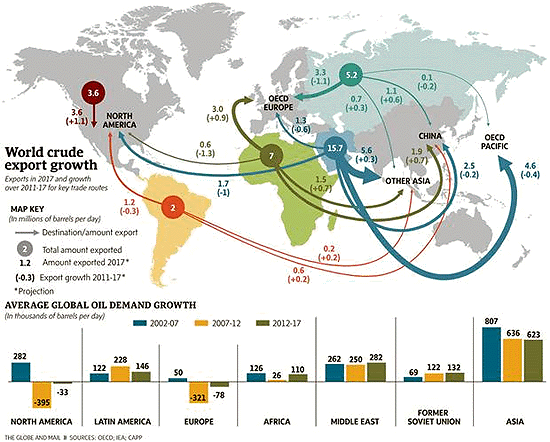
We welcome your comments below. If you are not already registered, please register to comment
Remember we welcome robust, respectful and insightful debate. We don't welcome abusive or defamatory comments and will de-register those repeatedly making such comments. Our current comment policy is here.